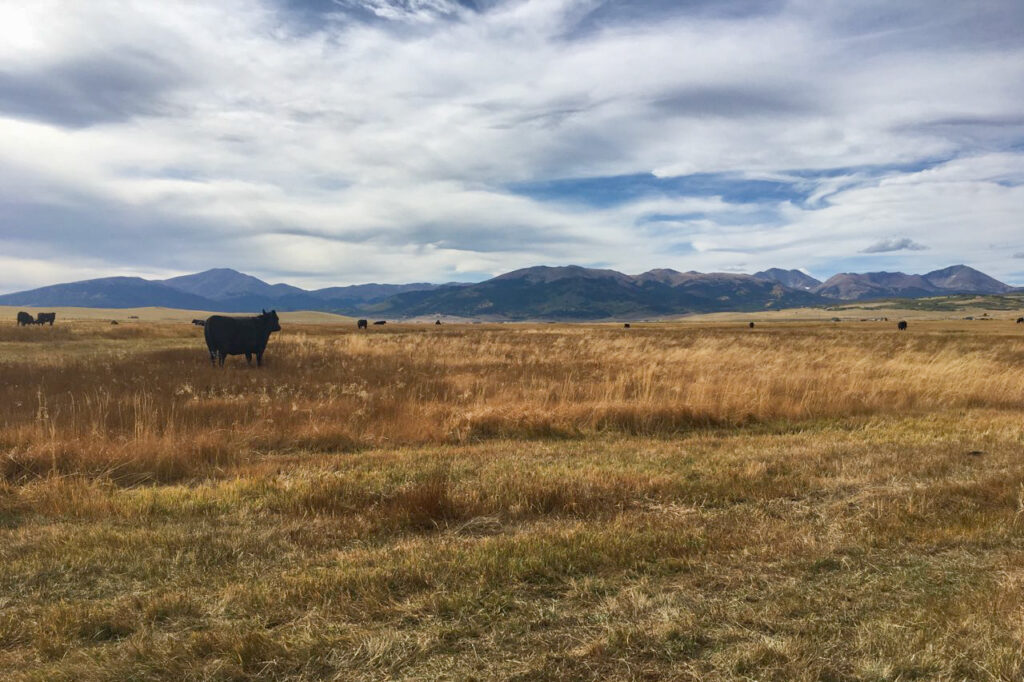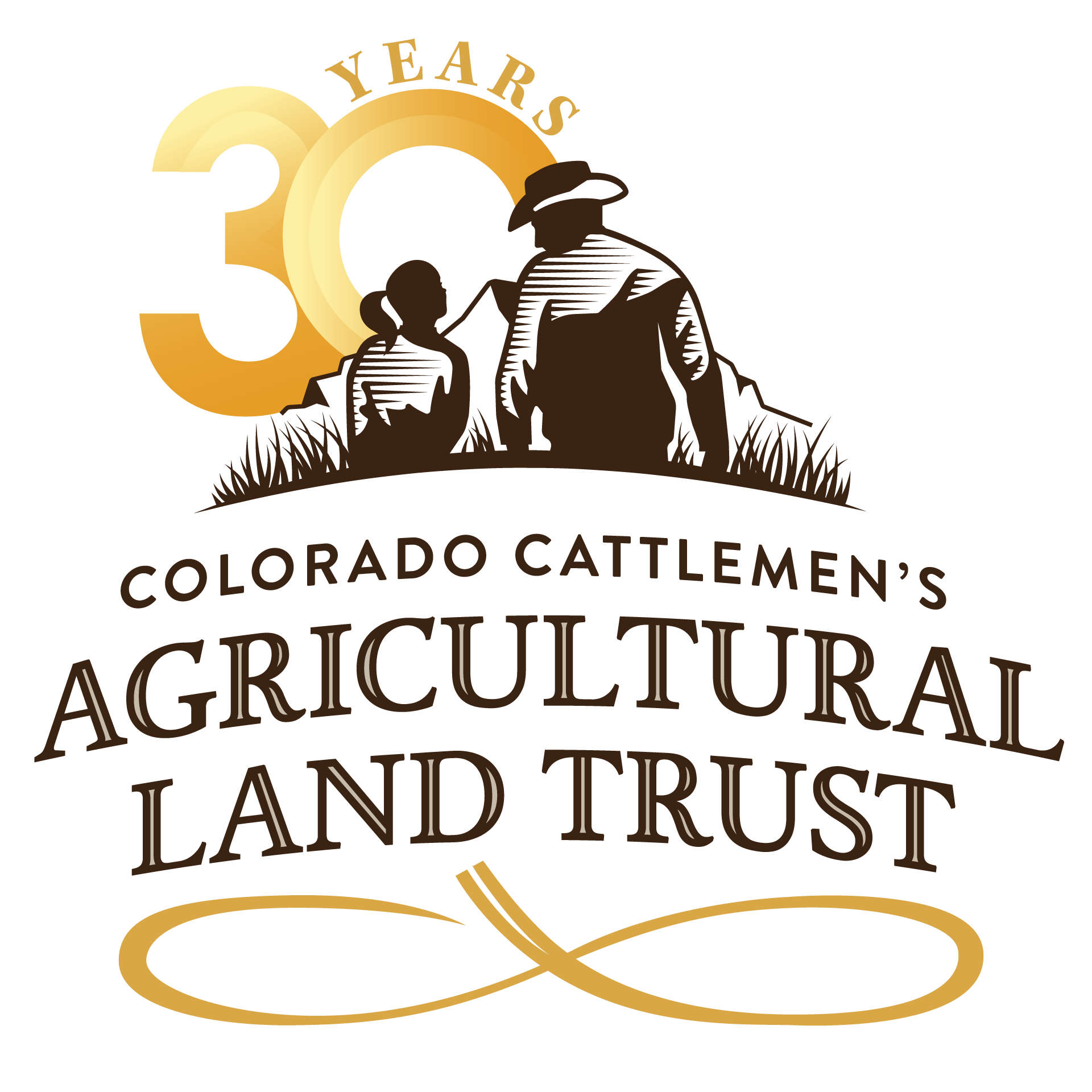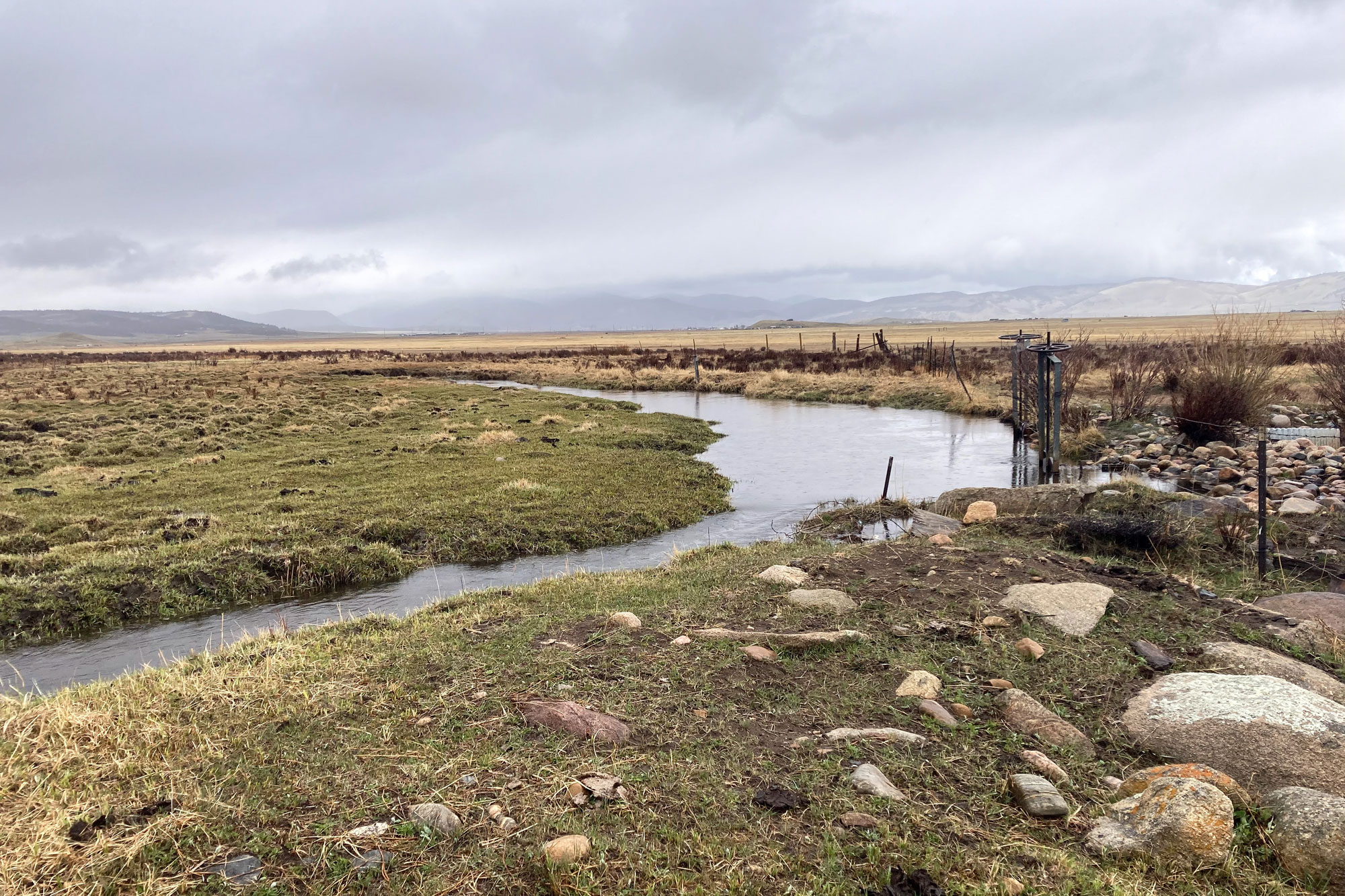Water, Water, Everywhere
The Emery-Wilhelm Family Agricultural Resiliency Fund
Takes off with Pilot Projects
By: Karina Puikkonen
January 23, 2024
The Colorado Cattlemen’s Agricultural Land Trust’s Additive Conservation Program established the Emery-Wilhelm Family Agricultural Resiliency Fund, referred to as the ARF, in 2023 to provide landowners with financial support for projects that contribute to the long-term ecological health and economic viability of conserved working lands.
A team from the Yale School of the Environment’s Ucross High Plains Stewardship Initiative helped CCALT develop a model for the fund and identified current project needs that include improving water infrastructure, fire mitigation and forest health, and grassland health and grazing efficiency. The first pilot projects for the fund were completed in Fall 2023, allowing a few of CCALT’s landowner partners to address current agricultural and conservation needs on their conserved lands.
Water Keeps Giving
Water is the lifeline of a ranch as mother and daughter, Frankie and Ginger Greene respectively, know well. Water from Michigan and Jefferson Creeks in Park County have fed the native rangelands, irrigated pastures, and wet meadows that have supported cattle and hay operations on the Greene Ranch for decades, and sustain the abundance of wildlife that have utilized these lands year-round for ages.
J.C. Greene, Frankie’s husband and Ginger’s father, started working on Ralph Johnson’s ranch in 1951, and a summer job turned into a lifelong friendship. J.C., Frankie, and Ginger continued to manage the ranch for decades when Johnson gifted them what became the Greene Ranch in 1984 before he died, along with senior water rights to the creeks. The Greenes saw years of plenty and scarcity come and go, but Ginger remembers the greatest lesson water ever taught her.

The multiyear regional drought of the early 2000s was tough, but 2002 was the year that almost finished them. Ginger said they had only been able to harvest one tenth of the hay they usually planted and had to feed their cattle old hay that had been stored in a horse barn since the 1950s. She remembered the creeks were just days from drying out completely in mid-July when the heavens suddenly opened.
“It started hailing and didn’t stop,” Ginger recalled. “There were multiple inches of hail on the ground and me and my dad just laughed.”
They couldn’t decide which would have been worse. The lack of hay in the drought year or losing a full hay crop to hail in a normal year. Either way Ginger gained perspective.
“It made you realize the fortitude of those who survived the dust bowl and the Great Depression,” she said. “We don’t have problems; we just need to work a little harder.”
Working Harder and Smarter
The family has done just that in their stewardship. Even when J.C. passed away in 2019, mother and daughter have continued running the ranch. In 2021, Frankie and Ginger partnered with the Colorado Cattlemen’s Agricultural Land Trust (CCALT), the Trust for Public Land, Park County, and the U.S. Department of Agriculture Natural Resources Conservation Service to conserve Greene Ranch and honor the legacy of J.C. Greene and Ralph Johnson.
Ginger remembered watching her father and Johnson work the land side-by-side and saw their heartbreak for surrounding properties that were sold and converted to other uses. The conservation easement protected their family’s legacy, as well as the natural resources under their care from development.
“We made up our minds to make sure that didn’t happen to our place,” Ginger said. “I’m grateful to CCALT that I wasn’t put into a position to lose it. We thank God for guiding us to and through the easement project.”
In 2023, Frankie and Ginger found they needed to replace two main headgates in Michigan Creek that were originally built in the late 1950s. The headgates stored and diverted much of their allocated water to their fields and lands via a system of ditches. If the headgates washed out, so would their immediate downstream habitat. This was a critical need to complete before the creeks froze for the winter and before the upcoming spring runoff, but the Greenes realized they needed additional expertise and equipment to address the repairs.
Through the conservation easement process, they knew about conservation resources and partnerships available to them. The ARF funds they received from CCALT allowed them to hire contractors that completed installation of the new headgates this past fall.
“To manage the land on the ranch, we needed to get water to the far ends,” Ginger said. “The contractors did a tremendous job; it’s better than I could ever have imagined.”


The Greenes also worked closely with the Colorado Division of Water Resources and Park County officials to ensure the new headgates would not impact other water diversions or downstream projects. They wanted to know they could get the water they needed, while also being accountable to their community. Working both harder and smarter allowed them to utilize the partnerships and help available to their conservation easement.
“We stick to our roots, always looking to better ourselves,” Ginger said. “Agriculture always looks to improve; we are original conservationists.”

